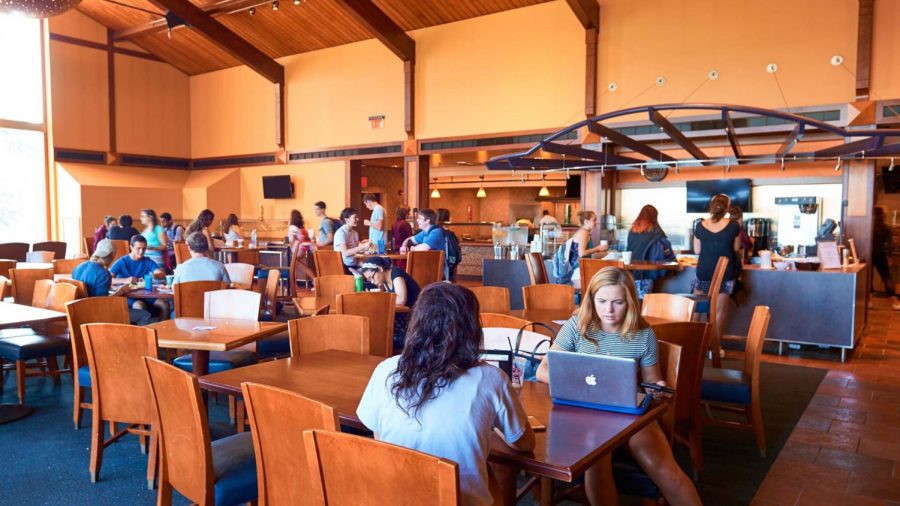The Sustainable Truth: Colgate Dining Services
We have all been guilty of it, no matter how eco-conscious we think we are. We have all come back from a long day of classes and club meetings with an empty stomach and plans to fill our plate. But, do we ever actually eat all of the food we stack on our plates? And, is this an isolated incident of our “eyes being bigger than our stomach,” or is this a sign of larger sustainability issues at Colgate’s dining facilities?
I, for one, am an occasional offender. Most days, I walk into the O’Connor Campus Center (COOP) and grab my entree and side — usually, that means the famous Chinese chicken salad and some fries. Although the portions are relatively reasonable, I find myself feeling guilty about the few pieces of wonton strips and lettuce I end up throwing away alongside my single-use plates and utensils. As I throw out the remnants of my meal, I find a trash can full of uneaten food and the COOP’s notoriously small brown plates. Yes, I am a part of the problem, as we all are, but maybe the dining practices at Colgate are also a part of the problem. As I thought of the changes I could make in my own life to live more sustainably, I thought about Colgate’s sustainability practices in dining services and realized I didn’t know much about them.
After interviewing Don Stanwick, the resident district manager of dining services, I learned about many of the sustainability practices in dining locations at Colgate, both in front of students and behind the kitchen doors. In terms of sustainable practices that have been implemented in front of the kitchen, Stanwick described the increased use of reusable items.
“A lot of the utensils are recyclable; a lot of them are compostable. A lot of our packaging is recyclable [and] we use eco-friendly products. In terms of buying disposables, we started with the green clamshell containers to try to be reusable instead of buying more and more paper that goes into the landfill.”
These sustainability practices had gone completely unnoticed by me until I realized that Frank Dining Hall has all reusable utensils and plates, take-away containers and does not have trays like other schools, which encourages students to only take what they need. Stanwick also pointed out sustainable practices that occur behind the scenes in the kitchen that most students are not aware of.
“We also focus on doing a lot of sustainable purchasing. For example, we focus on buying cage-free eggs, milk with no rBGH growth hormone in it [and] sustainably caught seafood. [We are also] trying to buy more plant-based foods to reduce our carbon footprint,” Stanwick said. “We also do a program called ‘Waste Not’ which is geared toward the back of the house in terms of prep. We weigh parts of emails that aren’t used such as the parts that are cut off of pineapples to be aware of how much prep products are being wasted or not used. We are able to keep an eye on how much we are producing so that we don’t overproduce.”
I was curious if these practices were making a difference in the amount of food waste in addition to paper and plastic usage. Stanwick described ‘Project Clean Plate,’ which is a biannual study that the dining services department conducts to measure how much food is being wasted in dining halls. Usually in November and April, trash cans in dining areas like Frank and the COOP are weighed to calculate how much food and plastic waste is accumulating.
Although the amount of food waste has decreased since sustainable practices have been implemented, there is still a considerable amount of food being uneaten and thrown away. We must do better and Colgate must do better; sustainable practices need to be implemented across campus and not just in the main dining hall. The COOP’s single-use utensils and plates can be swapped for reusable items and take away containers as an option for students. Together, we can create a more sustainable Colgate.

Kristen Quinonez is a senior from Los Angeles, CA concentrating in English and political science. She has previously served as an editor for the Arts and...




